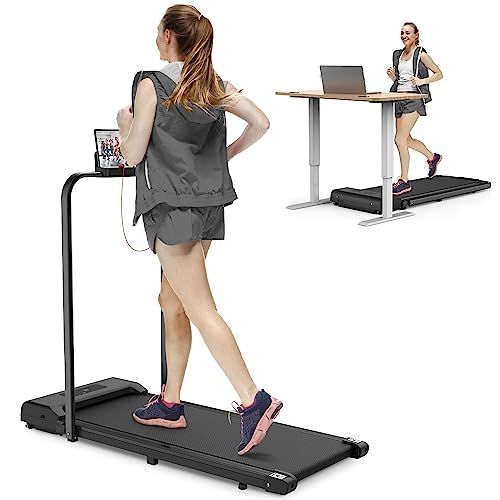The 12 Worst Types Of Users You Follow On Twitter
페이지 정보
작성자 Antonia 작성일25-08-12 12:28 조회7회 댓글0건관련링크
본문
Treadmills: A Comprehensive Guide to Understanding Their Functionality, Benefits, and Appropriate Selection
Introduction
Treadmills have become a staple in modern physical fitness regimens, both in homes and fitness centers worldwide. They offer a hassle-free and efficient way to preserve cardiovascular health, increase endurance, and help in weight management. This article explores the various kinds of treadmills, their advantages, functions to consider when purchasing, and some FAQs to guide users in making notified choices.
Kinds of Treadmills
When it concerns selecting a treadmill, it is crucial to understand the different types offered in the market. Here are the primary classifications:
1. Manual Treadmills
- Mechanism: These treadmills have a simple style and depend on the user's efforts to move the belt.
- Pros: More budget-friendly, quieter operation, no electrical power required.
- Cons: Limited functions, may not supply the same series of exercise strength.
2. Motorized Treadmills
- System: Powered by a motor that drives the belt, allowing users to stroll or perform at a set speed.
- Pros: Greater range of speeds and slopes, equipped with various features such as heart rate displays and workout programs.
- Cons: More costly and may require more upkeep.
3. Folding Treadmills
- Mechanism: Designed for those with limited area, these treadmills can be folded for easy storage.
- Pros: Space-saving, often motorized, flexible features.
- Cons: May be less resilient than non-folding designs.
4. Business Treadmills
- System: High-quality machines created for usage in gyms and gym.
- Pros: Built to stand up to heavy usage, advanced functions, often include service warranties.
- Cons: Pricey and not perfect for home usage due to size.
5. Curved Treadmills
- Mechanism: A distinct style that enables users to propel the belt using their own energy.
- Pros: Offers a more natural running experience, promotes much better running type.
- Cons: More pricey and can be noisier.
| Treadmill Type | Pros | Cons |
|---|---|---|
| Manual | Budget-friendly, no electrical power required | Minimal features |
| Motorized | Variety of speeds, advanced functions | Maintenance required |
| Folding | Space-saving, typically motorized | May lack durability |
| Business | Developed to last, professional-grade functions | Costly |
| Curved | Natural running experience, promotes excellent kind | Greater price |
Benefits of Using Treadmills
Treadmills offer various benefits that can add to one's overall fitness and health goals. A few of these advantages consist of:
- Convenient Workouts: Treadmills allow users to exercise indoors despite climate condition.
- Cardiovascular Health: Regular usage can improve heart health by increasing endurance and promoting healthy flow.
- Weight Management: Effective for burning calories, which aids in weight reduction and management.
- Adjustable Workouts: Users can manage speed, slope, and duration to create individualized workout experiences.
- Safety: Treadmills offer a predictable surface area, lowering the threat of falls compared to outside running.
- Multifunctional: Many treadmills come with functions like heart rate displays, exercise programs, and even entertainment systems.
Choosing the Right Treadmill
When picking a treadmill, prospective buyers ought to think about a number of essential aspects:
Features to Consider:
- Motor Power: Typically determined in horsepower (HP), a motor strength of a minimum of 2.5 HP is advised for serious runners.
- Belt Size: A longer and wider belt accommodates various stride lengths, providing convenience during workouts.
- Slope Settings: Adjustable incline functions replicate outside hill running and can increase workout strength.
- Weight Capacity: Ensure the treadmill can support the user's weight for safety and durability.
- Console Features: Look for user-friendly dashboards, workout programs, and Bluetooth compatibility for streaming music or other functions.
Spending plan Considerations
- Under ₤ 500: Entry-level manual treadmills suitable for casual walkers.
- ₤ 500 - ₤ 1,500: Mid-range motorized treadmills that provide more functions and better toughness.
- ₤ 1,500 - ₤ 3,000: High-end models with innovative innovation, bigger motors, and longer service warranties.
- Over ₤ 3,000: Commercial-grade treadmills perfect for frequent usage in fitness centers or training centers.
Frequently Asked Questions (FAQs)
1. How frequently should I utilize a treadmill?
It is recommended to use a treadmill at least 3 to five times a week, integrating numerous intensity levels for best at home treadmill (Get the facts) results.
2. Can I reduce weight by using a treadmill?
Yes, constant use of a treadmill can contribute to weight-loss, specifically when integrated with a balanced diet plan and strength training.
3. What is the best speed to stroll on a treadmill for beginners?
A speed of 3 to 4 miles per hour is an appropriate variety for beginners. It's essential to start sluggish and slowly increase speed as convenience and endurance improve.
4. Do I require to use a treadmill if I already run outdoors?
Using a treadmill can offer additional advantages, such as controlled environments and differed workouts (incline, periods) that are not constantly possible outdoors.

5. How do I maintain my treadmill?
Regular upkeep consists of oiling the belt, cleaning up the deck and console, and inspecting the motor for optimum efficiency.
Treadmills are important tools for those wanting to enhance their fitness levels in a controlled and hassle-free manner. With various types offered, comprehending their features and benefits is essential for making a notified purchase. By thinking about personal workout needs, space schedule, and budget constraints, people can discover the most appropriate treadmill that fits their way of life. Incorporating treadmill exercises into a well balanced physical fitness regimen can result in improved health results and a pleasurable workout experience.

